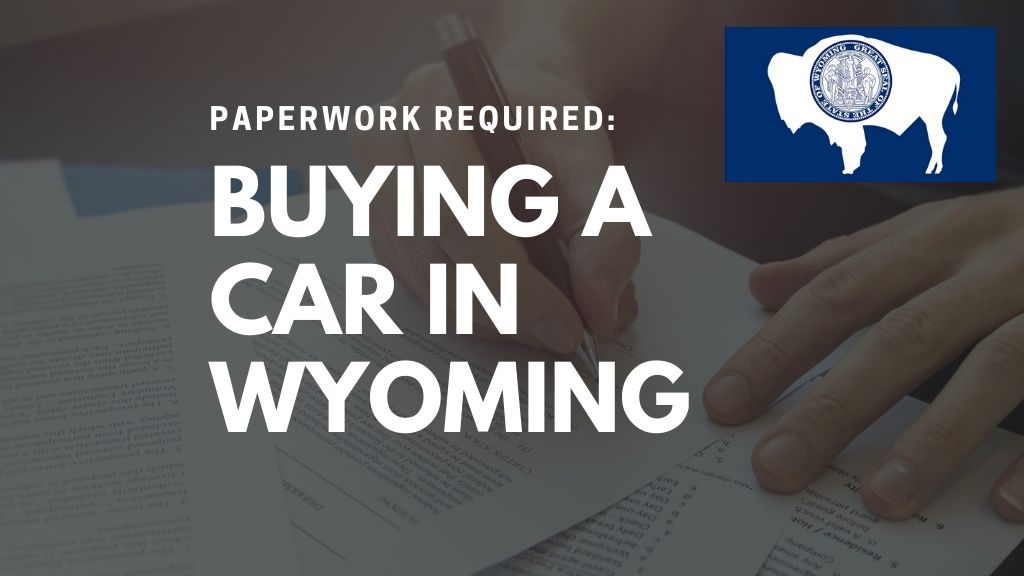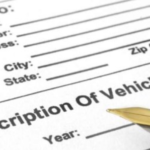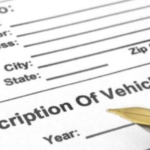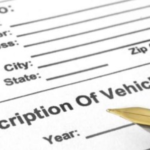Last Updated on June 3, 2020 by Jason Mason
For most people, purchasing a vehicle is a major purchase. It brings with it all the stress; particularly to those individuals who know nothing about vehicles. The stresses come as a result of the processes and paperwork involved.
When buying a car in Wyoming, you need the required paperwork in order to get the car registered and titled. If you buy a car from a dealer, they will normally handle the required paperwork on your behalf. If you buy it from a private seller, you will handle the paperwork yourself. Ensure that you receive the required documentation from the seller.
Buying Tips for New Vehicles
The following are some of the tips for buying a new vehicle:
- Do your homework well. Conduct plenty of research to get the vehicle you want in terms of price, lifestyle and tests. You can do your research on magazines, price comparison sites and buyer’s guides.
- You can also get reliable information from the internet. With the internet, you can compare prices of vehicles in different shops within the comfort of your home.
- Apply various negotiation strategies to get the best deal. You can learn these strategies from the internet when you are doing your research.
- If you fail to get the vehicle you want from the local dealers, you can import one from other countries. Don’t be pressured into buying any vehicle that you don’t want.
- Compare various financing partners. It may save you tons of cash if you do your homework well.
- If you get the best deal, analyze the contract closely to make sure all terms have been documented.
- Order the vehicle history report of the car you are purchasing. This report contains detailed information about the vehicle accident history, damage and repair history, odometer readings and VIN.
- Make sure you are aware of the value of the vehicle you are planning to purchase. There are several resources that you can use such as the National Auto Dealers Association (NADA) and the Kelley Blue Book website.
- Get the necessary paperwork for vehicle registration and titling from the seller. You will need these documents to transfer the vehicle’s ownership to your name.
Buying From an Individual
There is a risk of buying a vehicle from a private seller. You may fall a victim of bad deals such as being fooled into buying salvaged vehicles. Also, the processes involved in handling the paperwork for registration and titling can be hectic. However, the transaction is easier than when dealing with a salesman from the dealer. The key to getting the best deal when buying a vehicle from an individual is knowledge. You should be equipped with enough information about the processes and paperwork involved. Obtain the title certificate from the seller. You will need this certificate to transfer vehicle ownership to your name. If the seller fails to produce the title during the time of sale, don’t purchase that car even if it is the perfect deal. In fact it is a signal that the car was stolen or salvaged, and it will put you in trouble. If the title is missing, lost or damaged, ask the seller to apply for a duplicate copy at the county clerk’s office and sign it over to you. In a nutshell, these are things that you need to obtain from the seller to help you register and title the vehicle in your name:
- The original title certificate signed by both the seller and buyer in front of a notary.
- Odometer Disclosure Statement.
- If the title is from out of state, you also need to conduct a VIN inspection.
- A bill of sale.
Paperwork Required for Wyoming Buyers
The vehicle title is the only mandatory document that you must get from the seller. This document must be signed by all the previous sellers. All signatures must be notarized. If you purchase the car from another state, you need to conduct vehicle identification number (VIN) inspection. This can be done by Wyoming Department of Transportation officers or by any authorized law enforcement officer within Wyoming.
Also, you need to obtain an odometer status/reading from the seller if the vehicle is more than 10 years old. Another important document that might be needed when registering and titling your vehicle is the bill of sale. This document must contain name and signature of both the seller and you. The document should also show the agreed price upon vehicle purchase, date of vehicle purchase and the vehicle model.
To transfer the vehicle title in your name, you will also need to fill and complete Form MV-300A (Application for Certificate of Title and VIN Inspection Form). You will also need to pay the required fees and taxes during registration and titling. These two vary by county. For more information about the required fees and taxes, contact your county clerk’s office.
Buying Without the Title
In Wyoming, you cannot buy a car without a title, and if you do, it will be impossible to register or title it. If the title is missing, lost or damaged, ask the seller to apply for a duplicate copy with the county clerk’s office before purchase. To apply for a duplicate title, the seller must sign the notarized application. After which, the state will take time to process it. So, you need to give the seller time to get this document for you. Once the seller gets this document, it can be transferred to you.
Buying Without the Registration
The previous vehicle registration papers are not needed when registering and titling the newly purchased vehicle into your name. So, don’t worry looking for these papers.
Bill of Sale
A bill of sale is not needed when transferring vehicle ownership into your name. You can download a copy of this form from our website. You must fill your name and that of the seller, the vehicle purchase price and the vehicle’s model, make and year.
Vehicle History Report
A Vehicle History Report is not required when registering and titling your car. However, this report is important for you since it provides useful information about a vehicle that you are buying. Some of the information in this report includes:
- Past accidents.
- An odometer estimate.
- Damage from accidents, floods, or other events.
By using a vehicle history report, you can confirm what the seller is saying about their vehicle.




